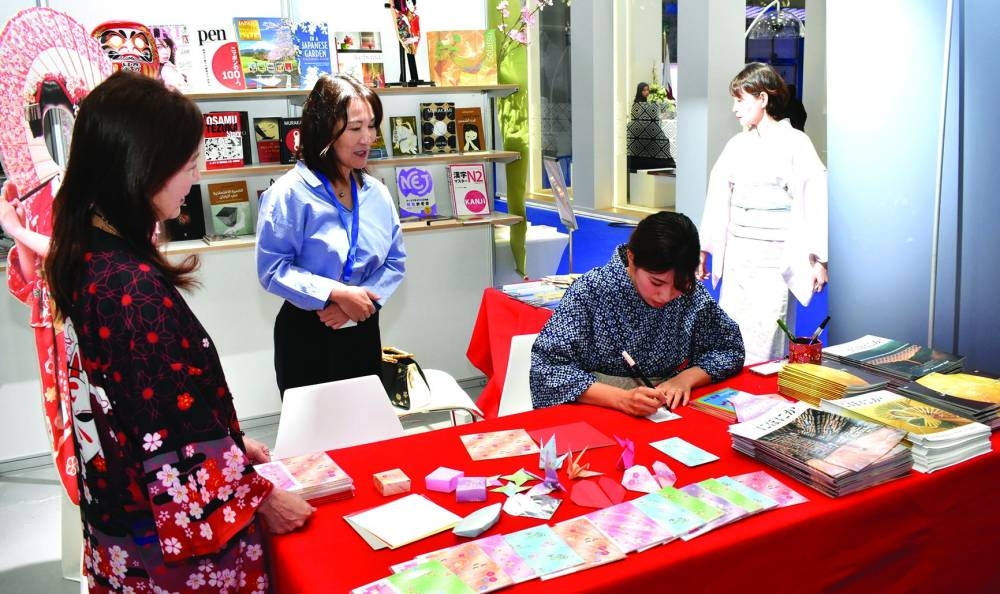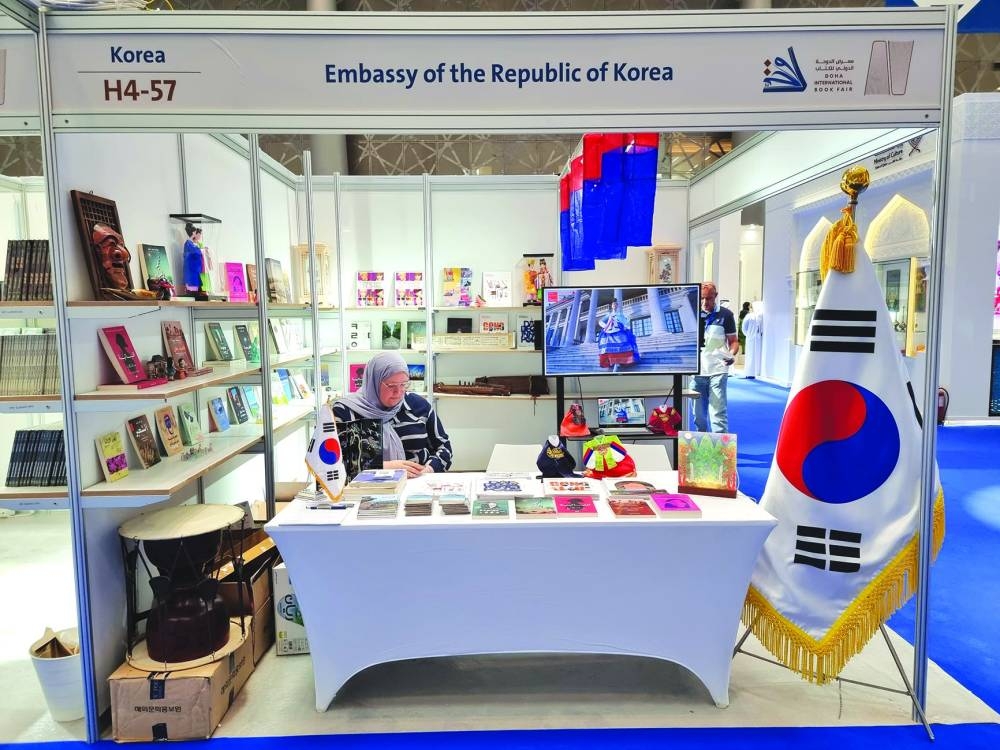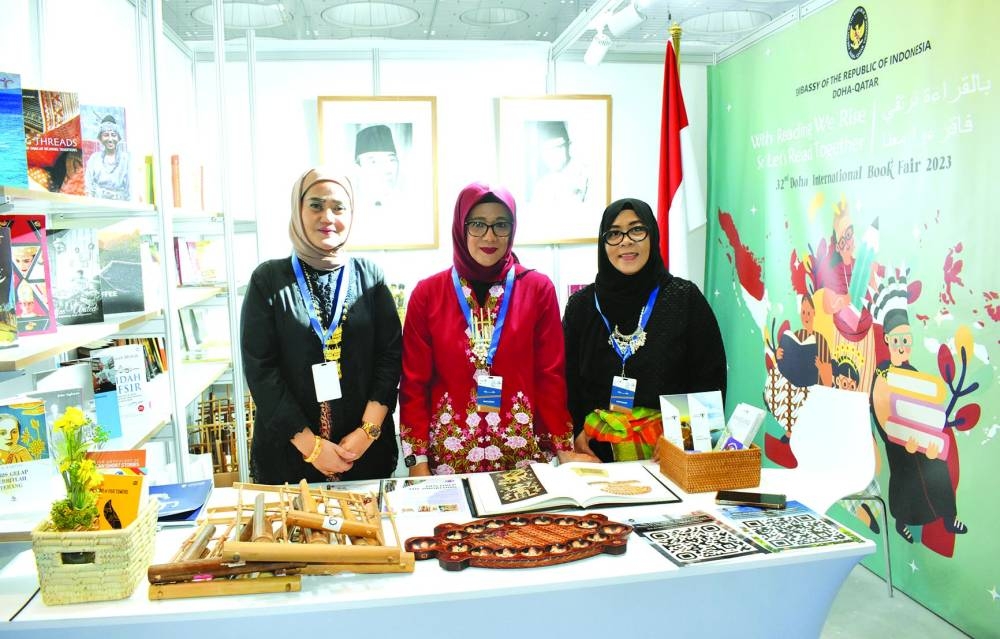The embassies of Japan, Indonesia and South Korea in Qatar are showcasing their rich cultural heritage through literary works and artifacts at the 32nd Doha International Book Fair.
The event, which opened Monday and runs until June 21 at the Doha Exhibition and Convention Centre, features a diverse collection of literary works and cultural exhibits from around the world.
The Japanese booth has become a popular attraction at the fair, offering visitors a chance to explore Japanese language, culture, and tourism. The selection of books caters to both children and adults, focusing on Japanese language learning and various aspects of Japanese culture, including architecture, tea ceremonies, flowers, kimonos, and origami.
Speaking to Gulf Times, Rika Grape Yamagata from the embassy’s Public Relations and Cultural Affairs said that visitors can enjoy calligraphy demonstrations and have their names written in Japanese characters.
Besides, she said they also offer origami demonstrations, with a special focus on teaching children how to create their own paper art. These interactive activities, she added, aim to promote a deeper understanding and appreciation of Japanese culture among visitors at the event.
Yamagata said the Japanese embassy's participation in the fair also aims to expand the learning of the Japanese language in Qatar, noting that preparations are underway for this year's Japanese Language Proficiency Test (JLPT) at Qatar University (QU).
The JLPT targets a relatively small audience of around 50 participants, but the long-term goal is to broaden its reach beyond Qatar, she said.
Yamagata noted that QU hosted the first JLPT test in the Middle East three years ago, and despite the cancellation of last year's test due to the World Cup, the upcoming December test is highly anticipated.
She said that in terms of promoting Japanese language learning, QU and Hamad Bin Khalifa University offer Japanese courses for both university students and adults, in addition to private lessons through the Japanese Teachers' Association.
Citing the positive impact of the book fair, Yamagata said the embassy's efforts align with the Qataris’ growing interest in Japanese culture, fueled by the popularity of Japanese cuisine and the appeal of Japan's rich history and subcultures such as manga and anime.
The Indonesian embassy underscored the importance of the cultural aspect of books at the fair, citing them as means of communication and a bridge between cultures.
The embassy's booth showcases literary works from the Indonesian diaspora, featuring various genres such as literature, children's stories, culinary arts, and cultural studies. Additionally, the embassy features books authored by Indonesian diaspora members residing in Qatar, providing visitors with a deeper understanding of Indonesian culture.
“Participating at Doha International Book Fair is always on the embassy's priority agenda. For us, a book is not only to communicate our idea or thought. More importantly, it's also a tool to communicate and bridge our culture. With our participation at this book fair, we hope we can enhance our cultural understanding," Indonesian ambassador Ridwan Hassan said.
“The book fair is always special because it brings books and literary industry from around the world. It is also considered as one of the oldest book fairs in the Middle East,” he added.
The South Korean embassy is featuring a booth that highlights the country's vibrant culture and history. In addition to a selection of books, it also showcases musical instruments and other unique works that capture the essence of South Korea's artistic heritage.

Book fair visitors can enjoy calligraphy demonstrations and have their names written in Japanese characters at the Japanese embassy booth. PICTURE: Thajudheen

The South Korean embassy booth at the book fair. PICTURE: Joey Aguilar

The Indonesian embassy booth at the book fair showcases literary works from the Indonesian diaspora. PICTURE: Thajudheen

